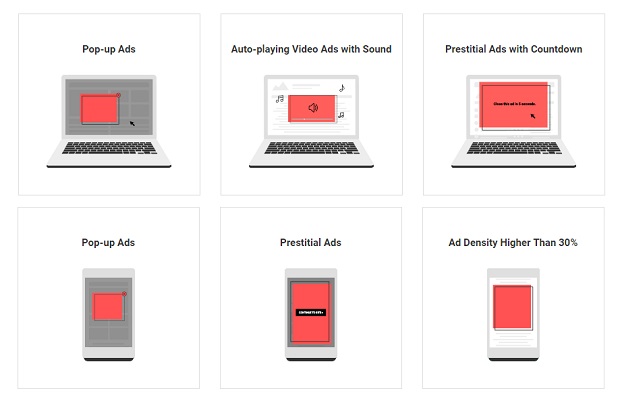Google has launched a new initiative to help reduce annoying advertisements online, by telling websites if they serve ads that people tend to find annoying.
Under the new scheme, those websites can then visit their Ad Experience Report for more info and screenshots of the advertisements in question.
According to a recent blog post by Scott Spencer, Director of Product Management for Sustainable Ads, websites with ad issues will be notified in the coming weeks.
Those that have been tagged can check the Ad Experience report for more information about the problem.
In a blog post, Spencer explained: “Replacing annoying ads with more acceptable ones will help ensure all content creators, big and small, can continue to sustain their work with online advertising. This is why we support the Coalition’s efforts to develop marketplace guidelines for supporting the Better Ads Standards and will continue working with them on the standards as they evolve.”
The move comes after the Coalition for Better Ads found that 69% of ad-blocker software users were found to be motivated by intrusive ads. It also found that pop-ups are the most annoying advertisements found on publishers’ websites. 50% of the research respondents expressed that they would not recommend nor revisit a page that contains such ads.
Furthermore, the issues were not found on mainstream publishers, like newspapers or business publications. Instead, they come from smaller websites that do not have similar quality control resources as the larger ones. Such websites also rely heavily on ads to bring in revenue.
“Instead of pop-ups, publishers can use less disruptive alternatives like full-screen inline ads”, Spencer suggests. “They offer the same amount of screen real estate as pop-ups—without covering up any content.” He concludes: “The good news is that people don’t hate all ads—just annoying ones. Replacing annoying ads with more acceptable ones will help ensure all content creators, big and small, can continue to sustain their work with online advertising.”
Read the blog post entitled ‘Helping publishers bust annoying ads’ here.

